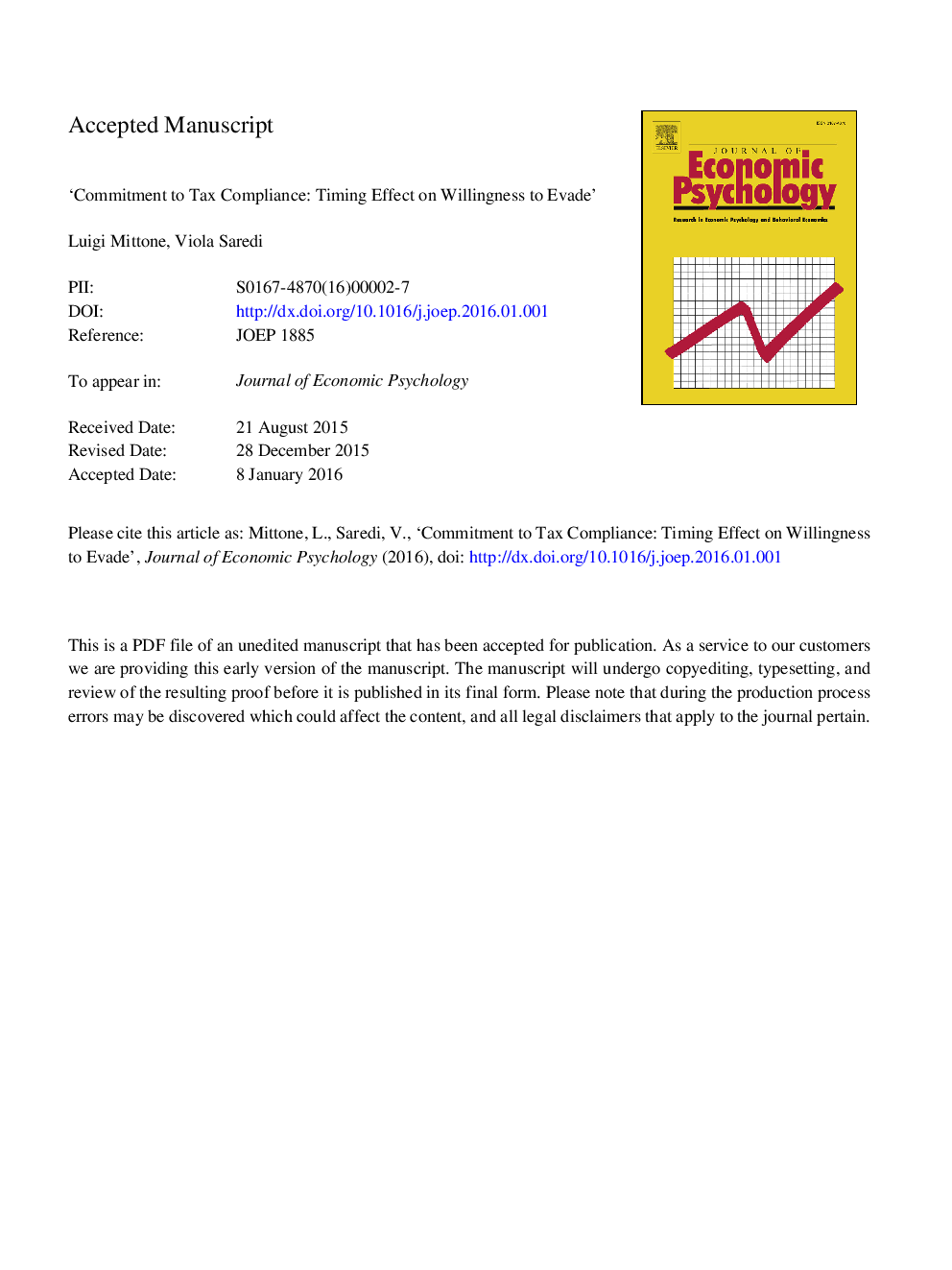| Article ID | Journal | Published Year | Pages | File Type |
|---|---|---|---|---|
| 7244413 | Journal of Economic Psychology | 2016 | 47 Pages |
Abstract
Experimental and empirical literature on individual decision-making has shown a remarkable difference between planning and ongoing decisions: when asked to plan their actions, people overweight events with low probability; on the contrary, in ongoing decisions, they tend to ignore them. We report on a laboratory experiment designed to explore the presence of this decisional inconsistency in taxpayers' behavior, by means of a commitment system for compliance. In line with the overweighting of events with small probabilities (i.e. fiscal audits), we find that planning induces the majority of people not only to adopt a mechanism of commitment to tax compliance, but also to actually comply.
Related Topics
Social Sciences and Humanities
Business, Management and Accounting
Marketing
Authors
Luigi Mittone, Viola Saredi,
